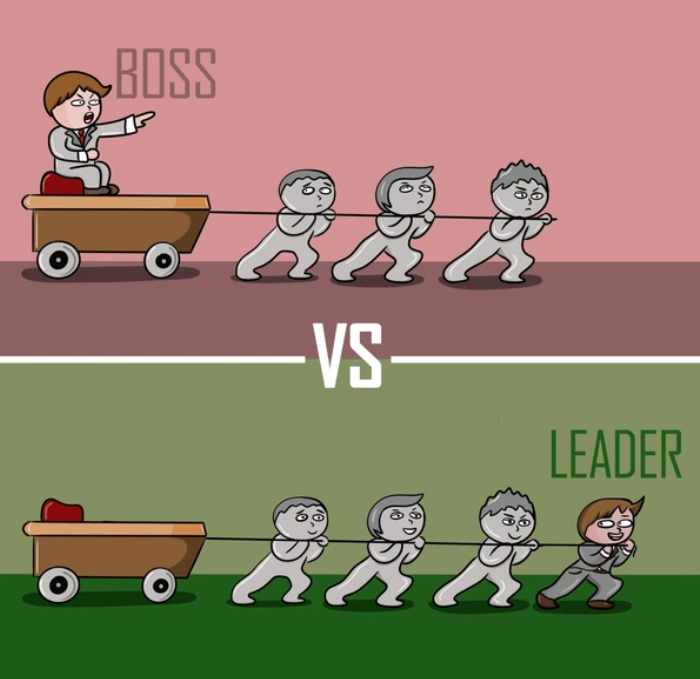Being in the corporate world for about 20 years, I’ve been blessed to largely have excellent bosses. I have, unfortunately, also experienced the inverse and managers I felt I had to get away from. Below is a quick list of what I believe makes a good boss and attributes of what I believe makes a bad boss.

Good Boss
- Listens to concerns – a good boss will listen, either to venting or to constructive concerns. They will also strategize and try to help either alleviate the concern by empowering the associate or coming up with a plan that both will execute on.
- Builds trust – A good team dynamic doesn’t work without the associates trusting the manager and each other. Trusting the manager is a great first step, but if the associates trust each other but not the manager, the team usually falls into a toxic pattern of frustration. Trust is key.
- Takes action – A good boss means what they say and says what they mean, they follow through with action items and initiatives they commit to.
- Is aware of politics, but isn’t consumed by them – A good boss needs to be aware of the current political climate and how to appropriately navigate it to achieve goals, but isn’t obsessed at attending ‘the right parties’ of or with their superiors nor do they live or die based on pithy comments they make in meetings. A good boss represents their team honestly, conveys concerns, and is a partner to other leaders to run the organization smoothly.
- Gives more credit than takes – A good boss defers credit to the great people that work for them and doesn’t take credit themselves.
- Shows up to 1on1s – Managers must be reliable and show up to meetings consistently. Easier said than done in some circumstances, but very simple.
- Consistently follows ethical guidelines and is an example to their team (i.e. leads by example) – Tone and cultures flows from the top down. A culture of unaccountable weasels likely get that culture from their leadership. The inverse is true as well. A solid boss who is predictably ethical sets a tone for their organization and establishes ethics as a culture.
Bad Boss
- Makes everything about them – prima donnas, I’ve seen many of these. It’s always sad, and they almost always leave in disgrace and shame. These are also usually the type to shift blame (i.e. the teflon dons) – nothing is ever their fault and someone else always ends up holding the poo bag until someone finally sees through them.
- Takes all credit for team member accomplishments – instead of elevating team members, a bad boss will take credit for everything their team members do to make them appear indispensable.
- Gives excuses for taking no action – there’s always an emergency or something with higher priority than being able to follow through on what they say they’ll do.
- Is a political sycophant – A bad boss can usually be seen following around power at social gatherings, laughing a bit too hard at not so funny jokes and is hard-pressed to what they believe will ‘make a good impression’.
- Inconsistent and unreliable in meetings or showing up to 1on1s – Bad managers accept all meetings and show up to very few.
- Complains loudly at the start of every meeting on higher up decisions and routinely says ‘I should just quit’ – I had one that did this late in my career, it was shocking, so I had to put it here because that was a terrible boss move.
- Has no idea what they’re doing but is confidently assertive in meetings – like a good con artist, an awful boss will make assertions as though they know what they’re talking about but really don’t.
- Two-faced – says one thing to your face and another thing behind your back
